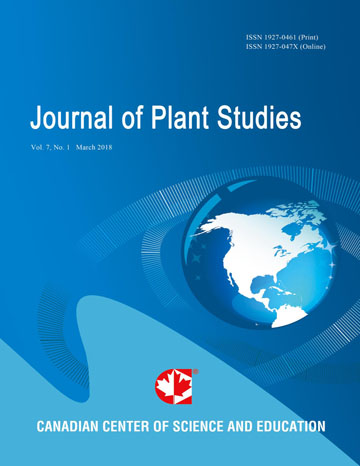Response of Potato Varieties to Potassium Levels in Hamelmalo Area, Eritrea
- Daniel Zelelew
- Biniam Ghebreslassie
Abstract
Poor soil fertility and lack of high yielding certified varieties are of the major potato production tribulations in Eritrea. Top soils are continually removed due to water run-off and thus soil fertility and productivity has declined as a result. An experiment was designed to assess the response of potato varieties to different levels of potassium application at Hamelmalo Agricultural College, Eritrea. Three varieties (Ajiba, Zafira and Picasso) and five potassium levels (0, 75, 150, 225 and 300 kg K2O/ha) along with all possible interactions were used. Experimental design following factorial Randomized Complete Block Design (RCBD) in three replications was employed. Data was collected on yield and tuber quality parameters. The result of the study indicated that there were significant variations in the performances of varieties in terms of yield and quality parameters in which Ajiba was found to be more responsive and high yielding. Tuber number, tuber diameter, tuber weight per plant, total yield, total soluble solids, specific gravity and tuber moisture content showed significant differences due to the application of potassium. As a result, the highest tuber weight (1.14 kg/plant) and yield (49.38 tones/ha) were recorded from Ajiba treated with 300 kg K2O/ha. The result further revealed that there is a promising profit return by investing more on potassium application upto 300 kg K2O/ha. It is, thus, recommended that potassium fertilizers should be introduced to optimize productivity in Hamelmalo area, Eritrea.- Full Text:
 PDF
PDF
- DOI:10.5539/jps.v5n1p11
Journal Metrics
h-index (December 2021): 17
i10-index (December 2021): 37
h5-index (December 2021): N/A
h5-median(December 2021): N/A
( The data was calculated based on Google Scholar Citations. Click Here to Learn More. )
Index
Contact
- Joan LeeEditorial Assistant
- jps@ccsenet.org
